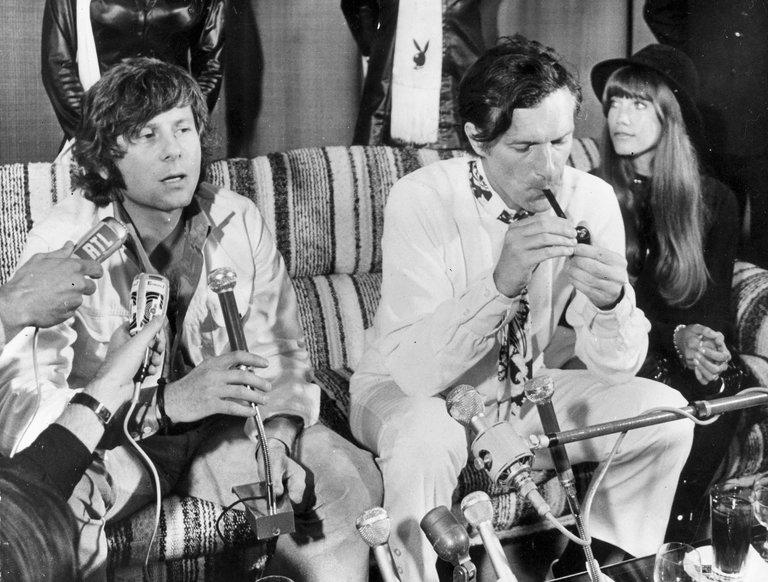|
Op-Ed: The ’70s and Us
By Ross Douthat
“I came of age in the ’60s and ’70s, when all the rules about behavior and workplaces were different,” Harvey Weinstein wrote in his awful pseudo-apology, just before the fake Jay-Z quote and the promise to go to war with the N.R.A. “That was the culture then.” Everyone has made sport of this line, but give the devil his due: In certain ways sexual predation actually was the culture in the years when Weinstein came of age, in the entertainment industry and the wider society it influenced and mirrored. There is a liberal tendency to regard sexual exploitation as a patriarchal constant that feminism has mitigated, and a conservative tendency to regard it as a problem that’s gotten steadily worse since the sexual revolution. But a corrective to both assumptions (my own declinist ones included) is worth noting. When it comes to Weinsteinian behavior and related evils, things probably haven’t ever been as bad in modern America as they were for a time in the 1970s. And if you want to understand our own era’s problems, the specific ways that things were worse back then are worth remembering. You can remember some of it with ’70s statistics: Never so many divorces, never so many abortions, a much higher rate of rape, an S.T.D. crisis that culminated in the AIDS epidemic. But some of it is better grasped through anecdote and social history — particularly the extent to which the ’70s saw the drug-enabled exploitation of kids on a grimly horrifying scale. As Matthew Walther pointed out recently in The Week, much of rock and roll’s groupie culture was a spree of statutory rape, with the gods of rock as serial deflowerers of girls not much older than Dolores Haze. In the same era’s anything-goes Hollywood, Roman Polanski had good reason to regard sodomizing a 13-year-old as what they let you do when you’re a star, or even when you’re not. Yes, that was the entertainment business, always sordid and permissive — but the same pattern showed up all over, from posh prep schools to the Roman Catholic Church. The abuse of children by pedophile priests is an ancient problem, but something new happened in Catholicism between 1960 and 1980: The prevalence of pedophilia stayed about the same, but suddenly the rate of priests groping and seducing and raping teenagers shot way, way up. As went Bowie and Zeppelin, so went the most putatively-conservative institution in the country. And then — things got better, thanks to some combination of AIDS-era fears, the toll of drugs, third-wave feminism and a revived religious conservatism. Rape went down. Abortion rates went down. Divorce rates went down. The rate of priestly sex abuse fell before the revelations and lawsuits really started. The coarse worldview I’ve called “Hefnerism” endured, as the victims of Weinstein and Bill Clinton and Donald Trump can well attest. But while feminism struggled to restrain it, in the educated classes some restraint has been imposed. And the worldview you might call Polanski-ism, which winked at the use and abuse of teenagers, became disreputable and then generally condemned. Moreover this relative-to-the-1970s restraint has held lately, at least provisionally, even as we’ve gone through an aftershock of that social revolution, in which religion has waned some more and permissiveness increasingly dominates opinion polls. Old-fashioned mores are not coming back — but neither, for now, is the wild erotic acting-out of the ’70s, their often-cruel dionysianism. But let us not congratulate ourselves too quickly. There are ways in which we have passed from eros to thanatos — from the chaos of unrestrained desire to the stability of senescence. Our era is less overtly sexually destructive in part because we are giving up on sex itself, retreating into pornography and other virtual consolations. In the 1970s people left their marriages because they believed some higher fulfillment awaited; in the 2010s they marry less, have less sex once married and have fewer children, opting out of promiscuity and procreation both. Abortion rates are down, but suicide rates are up. Hefnerism seems to have led us through orgiastic excess to depressing onanism. Meanwhile despite their moral turpitude the ’70s still occasion nostalgia, for bad reasons but also one good one: They featured our civilization’s last great burst of creative energy. Those predatory directors and rape-y rock stars made great movies and memorable music. Our sclerotic interest groups were born as idealistic causes then; our repetitive religious and intellectual debates were fresh and new. Our era is calmer and safer and less vicious (Trump and Twitter notwithstanding), but its peace feels like cultural exhaustion. And Harvey Weinstein is a fitting bridge between that world and ours, both artistically and morally. His independent-film work tried to revive or imitate the ’70s auteur spirit, before giving way to lousy Oscar bait for his companies and endless superhero movies for the system. Meanwhile the way he brutalized young women was a very 1970s way to be a movie-business monster. But the allegation that when balked in his advances, he masturbated into whatever receptacle presented itself? That’s very 2017.
|
.
Any original material on these pages is copyright © BishopAccountability.org 2004. Reproduce freely with attribution.
